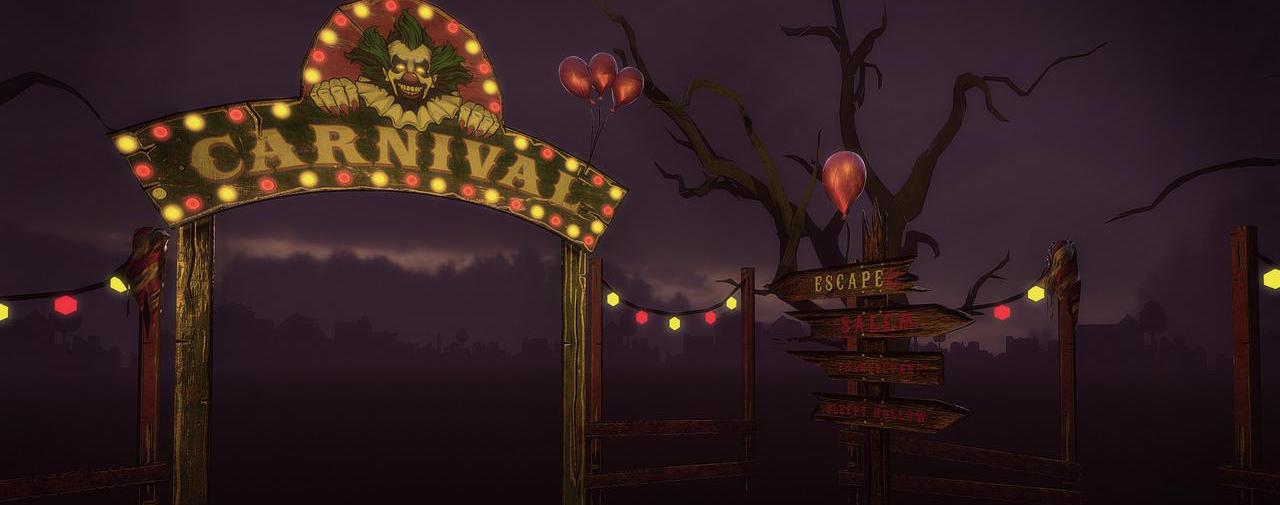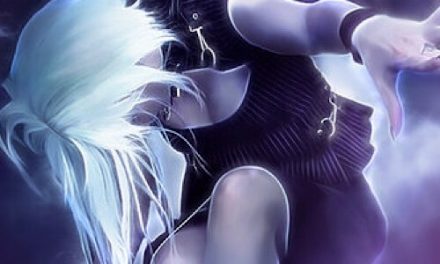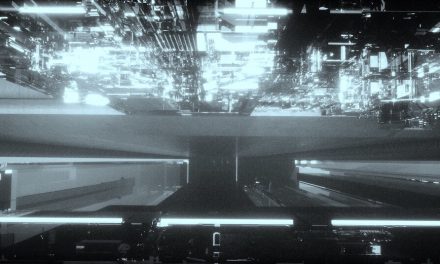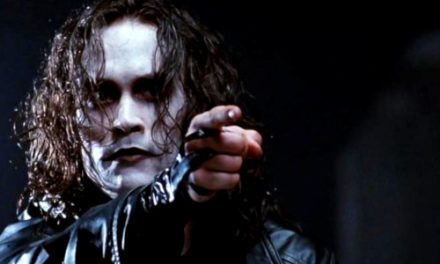Some years back I was involved in a Mage: the Ascension gaming chronicle affectionately called “Putting out Fires … with Gasoline.” The primary plotline was that our characters—all young and inexperienced mages of varying power and ability—had lost our respective teachers in the mystic arts, and we were cast adrift to fend for ourselves in a world far stranger and complex than we had previously known. The World of Darkness setting is one I write about often, so much so that it has its own category here on this blog, and I feel it’s the right time to detail one of the last WOD characters I ever played, whose presence left a lasting impression on the characters and players of that chronicle.
Jovan (a stage name) was a tall, rail-thin, snide man who thought little of the world or those who inhabited it. He took in their passing joys and fears in equal measure, experience showing him that, no matter where the carnival traveled, people were the same everywhere. He believed in nothing—or more accurately, that nothing actually mattered—and was rightly described as “caustic,” “insensitive,” and “a broken man” by those who would later travel with him. He observed the world from beneath a garishly over-sized ratty top hat and from behind long cigarettes that had long before stained his fingers a dull brown. He was sickly, incapable of running for more than even a few steps, and his sense of humor could be described as “cruel mockery” only by the most charitable of friends. He could have been 30 or 50 years old, his hard living having taken its toll on his body.
Jovan did not fit in with polite society.
As a very fledgling mage, showing a penchant for Correspondence and Entropy, he found himself caught up in the troubles and dramas of other will-workers when they visited the carnival that had been his home as long as he could remember. Secret agents, members of the anti-mage Technocracy, attacked and made a true ruin of things. With his mentor—a fortune teller who was well-practiced in the art of reading fate, and recognized that though he had the gift, he was not one of her kin—disappeared and the carnival suggesting that perhaps he should spend time with his “new friends” rather than the carnival as it sought to regroup and recover, he invited himself along to join the other mages in whatever foolish and failure-prone escapades they had planned.
Two of the group were members of the Celestial Chorus, and argued endlessly about the nature of God’s will and the ineffable plan for humanity. Another was a Verbena, a druidic blood-sorceress, while the rest were a collection of thinkers and experimenters. None really appreciated the inclusion of the ignoble and sarcastic pessimist to their number, but they couldn’t deny that he had been vital to their successful escape from the carnival and could interact with a very different subset of the population than they themselves could.
One of the group, perhaps more well-studied or -mentored than the rest, called him a “Hollow One,” and Jovan took the title to heart. “Life is empty and meaningless, why shouldn’t I be?” he shrugged. It wasn’t then—having really become one of the team—that he started pushing the boundaries of good order and propriety, but it certainly ramped up his antics to new heights.
Inviting himself into the wealthiest member’s home, he all but took up residence, unasked. He drank the alcohol, smoke indoors and left ashes on the fine couches, and largely made himself an annoyingly visible guest. He seduced and had an affair with a neighbor, parked his dilapidated fifth-wheel on the front lawn, and largely poked fun at the so-called importance of the group’s tasks as they sought out their missing mentors and uncovered terrible secrets involving nano-machines and resurrecting the dead, all put into practice by the same Technocracy that had bound them together in the first place.
While he was a gigantic pain in everyone’s side, Jovan was at least talented in areas of the mystic arts that eluded his fellow mages; he had a natural command over time and space such that he—or they with his help—could be transported across vast distances in an instant, scry on private meetings and social engagements, and slow down clock hands so they could accomplish more than could be believed in a short period of time. Begrudgingly, they also admitted that he provided a good check on some of their more wild or outlandish plans.
It was around this time that Bambi, a recent addition to the group in the form of a bobble-headed young woman with little conception of foresight or consequences, determined that they needed to attack the problem head-on, and have a meeting with the leaders of the local Technocracy. The rest scoffed at her idea and went about their own ways, but Jovan was morbidly curious about what she could concoct.
Following her lead and direction, he ordered a pizza and purchased a BeDazzler. Her plan was to go up to the top floor of their office building, deliver them the pizza, and when they opened the box they would see a gem-encrusted message containing the team’s phone number. Why, even Jovan couldn’t have come up with a worse plan.
He loved it.
Going with Bambi to the headquarters of their primary foes, Jovan was instrumental in allowing for their escape as armed and magically-awakened guards closed in, unimpressed with their ruse. He used his control over space to create a portal back home, at great mental and physical cost to himself as he took several of the shots that were aimed at his young friend. Bloodied and unconscious, he tumbled through the portal, landing on—and crushing—the expensive family room table his host treasured.
Whatever his—many—flaws, he had not only risked his life to care for another of the group, he actively shielded and defended her from their enemies. Whether they liked it or not, his place within the group was well and truly solidified.
Can one still be a nihilist while holding a fervent belief? Jovan wrestled with that dichotomy for the rest of his time with the group after facing down a creature which shook his worldview to the core.
After attending a frat-party rager BBQ, before which he convinced his companions that “tapas” and “tacos” were synonymous, the party discovered that the men and women in charge were preparing a mass sacrifice in service to some dark entity. The party escaped with their lives, but not before Jovan, with second sight peeking into aetherial planes, saw a terrible, fleshy caul that was the embodiment of the evil the fraternity served. It chilled him to the bone, and awakened a fire within him the likes of which he had never known. That fire manifested in his hands, and he struck the membrane time and time again, having to be physically restrained and removed by his companions. “This world is going to Hell on its own,” he tried to explain, “that thing doesn’t need to help it along.”
He couldn’t clearly describe his visceral reaction and immediate hatred of the skin-thing they saw in the basement, and while everyone else felt the entity, and those like it, needed to be destroyed, none held the same righteous zeal as Jovan did, the fervor of which even impressed the two Choristers.
In their various investigations, they discovered the Technocracy was using nanites, which could animate dead flesh, as a means of subjugation and control. Harrowing trips to local cemeteries and break-ins to the homes of local Technocratic agents gave them more and more evidence that something huge was in the works. With no-one else to turn to, they worked on tackling the problem first-hand.
The group had occasion to capture a house cat that had been infected with the nanites, becoming a terrifyingly feral and hostile creature. As they struggled to get the creature into their base of operations, it got loose and started striking at everyone who approached. One of the Celestial Chorus, a twenty-year veteran of the SFPD, decided that he himself would wrestle down the little creature. Four savage slashes and a bite to his leg later, he saw the tell-tale signs of grey streaks running up his veins toward his torso, nano-machines moving to hijack his body and mind.
“No way, I am not becoming one of those things,” he declared as several of the group raced through the expansive house to find the Verbena, whose healing magics had allowed for miraculous recoveries in the past. In front of Jovan he summoned a sword out of pure magical energy, took a deep breath, and sliced off his own leg. Between the wounds he suffered at the paws of the cat, the overzealous application of magical energy into his blade, and sheer blood-loss, the man fell dead on the floor.
The rest of the group returned in a hurry, the Verbena quickly in tow. “What happened here?” they cried out, seeing the fallen party member on the floor.
“He died how he lived,” Jovan shrugged. They looked to him for an explanation. “By the sword.”
Unsurprisingly the group did not appreciate his gallows humor, and in their rage were set to throw him bodily from the building. “Aren’t you always saying that ‘everything is God’s will’?” he accused the other Chorister. “God wanted this to happen. Who are you to say otherwise?”
The other man backed down, deflated. The rest of the group stared daggers at the black-clad celebrant, but agreed to deal with the body—their friend—and that Jovan wasn’t worth the time or effort to punish. After burying the police officer, the team—sans Bambi and Jovan—came up with a plan to strike at the heart of the industrial factory where the Technocracy was building the nanites. Jovan was as much a fan of the destruction of private property as anyone else, but vehemently disagreed with their plan, seeing it as throwing their lives away in an even more futile gesture than normal. He and Bambi stayed home.
Several hours later, with no word from the team, Jovan turned to Bambi. “Do you want to go?” She nodded.
The best part of ambiguous sentences, Jovan usually thought, were their malleability. That night he hadn’t even considered any other meaning than to get out of Dodge and escape any repercussions from the mission. Bambi figured Jovan was worried about their friends and wanted to go check up on them. With his fifth wheel always packed and ready to go, they headed down the dark Bay Area freeways toward places unknown.
It was only hours later that Bambi realized they had left the familiar sights and sounds of Oakland. “Where are we going?” she asked.
“New Mexico at first, then maybe Kansas,” he shrugged, not having actually given it any thought and just naming random states.
“Oh,” she nodded, finally understanding his motive. “Okay.” She sat back against the seat and was perfectly comfortable with the idea of vanishing into the unknown. They would figure things out together.
Wielding magic, shaping the very forces which compose the world, takes a toll. The universe does not appreciate being told what to do, and finds opportunities to strike back at magicians who are a bit to cavalier with their powers. Through the entire time he had been with the group, and the time with Bambi, he had almost never suffered consequences for his antics. That was, until a squad of Technocrats found him outside of Warsaw, Indiana. As she fired with her quintessentially midwestern shotgun, he wrapped the threads of time and space to yank the agents into next Tuesday—and 30,000 feet above the earth.
As the pair caught their breaths in the wake of the intense firefight, he noticed a strange, supremely uncomfortable feeling, as if the universe itself were pulling at him, twisting him. Bambi saw the color drain from his already ashen face. “Jovan? Are you okay?”
He met her gaze, his own eyes rimmed with tears. “My real name is Eric.”
Jovan vanished then into the quiet places of the universe, pulled out of time to serve in purgatory for his many crimes against the natural order of things. Bambi, shocked, knew she could not easily find him, and continued driving the battered and beaten fifth-wheel Northeast.
Six months later their son was born, a rail-thin baby with pale skin and dark eyes. “Eric,” she addressed him. “Your name is Eric.”
Out-of-Character Commentary
Jovan was an isolated, cynical, toxic antihero who took pleasure at helping others to realize just how meaningless and futile their plans, hopes, and dreams were. Whether born from his own insecurities or an actual disdain for the world and its pageantry, his carefully-crafted image of someone who didn’t care what others thought was no more real than any of the masks the others wore in public. His curse, he thought—and the source of his freedom—was that he alone realized how pitiful it all was.
While I had a great deal of fun playing Jovan, including the time magic caused a winning lottery ticket to become fused to his hand (meaning they couldn’t redeem it) and the time a safe-house turned into a nanite-spraying zombie fountain, he truly was a heel, and on looking back I don’t think it was an overall positive for the game to have him there. At the time I played him I was dealing—poorly—with my own depression and thoughts of worthlessness, and was often too mentally tired to contribute meaningfully to the group. I think having a check on the others’ grand plans and designs was good, and I still love the concept of a moody carnival barker getting wrapped up in supernatural powers—which he then uses largely to annoy people—but I think if I were to ever re-visit the concept it would take significant tweaking to make his maladies more realistic, to have a more clear answer of from whence they stem and how they inform his actions, rather than just being an ass to everyone for some ambiguous reason.
I like to think I’m a very different player these days, let alone a story-teller, and so my focus and aims are very different than when I first created Jovan. Heck, these days I actually have focus and aims when I craft a character, which is hopefully visible in the many character concepts I’ve posted on this blog. I have to wonder how a character like Jovan would work in a different setting, a different story, maybe even with the same background and affectations.
One thing I truly enjoy about role-playing is that every session, story, and chronicle is both a chance to try something new and an opportunity to rework older ideas into new concepts.
Header image designed by Eugene Rozin for the game Apollo Slots VR on Oculus














